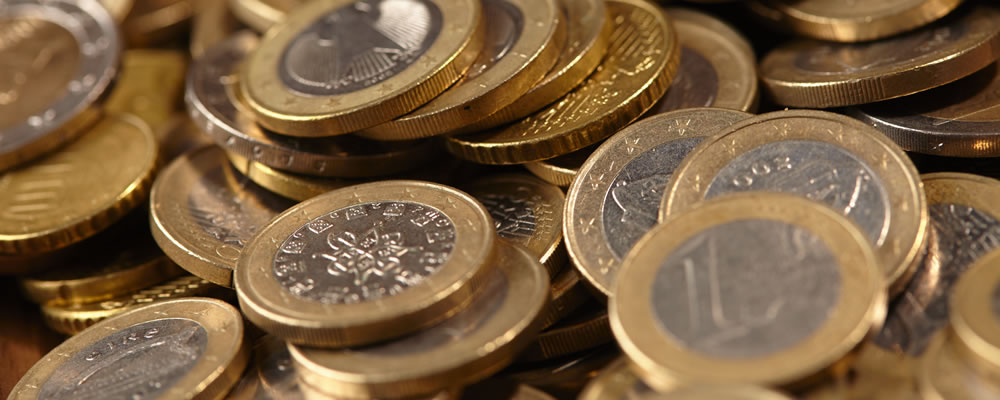- Euro (EUR) Exchange Rates under Pressure from Greece – Country may need a forth bailout.
- Australian Dollar (AUD) Gains on Chinese Data – Markets return to risk-on as PPI data is better than expected.
- Deutsche Bank May Shrink US Operations – Bank under pressure to lower costs.
- European Consumer Price Index – EUR AUD edges higher on positive data.
The EUR AUD exchange rate fell by around three cents to hit a new yearly low during last week’s session as the Australian Dollar (AUD) was bolstered by stubbornly high trade prices, causing traders to flock to the high-yield currency.
Greek Bailout Possibilities weigh on Euro (EUR) Exchange Rates
The ‘weak link’ of Europe has once again begun to drag on Euro (EUR) exchange rates. Auditors have arrived in Athens for their latest inspection of the Geek economy and will review the progress made on the economic reforms that were imposed in exchange for an EU bailout.
Greece’s debts currently sit at around €330billion as the beleaguered country continues to struggle with high unemployment, poor export growth and consumer pessimism. This has led to the Bruegel Institute warning last week that Greece may need a forth bailout in 2018.
The potential of yet another bailout for the Greek economy is likely to weigh on the Euro as investors worry about the possibility that the EU is simply throwing good money after bad. Alternatively the idea of a ‘Grexit’ to cut losses is also likely to alarm investors.
Australian Dollar (AUD) Gains as Risk Appetite Increases
The Australian Dollar surged against the Euro (AUD EUR) late last week as Chinese PPI data unexpectedly grew in September, posting the first positive results since early 2012 as it reached 0.1. The news that one of Australia’s largest export markets had possibly returned to growth saw traders flock to the commodity-correlated ‘Aussie’ as market risk appetite grew.
Risk appetite was also increased by recent US election polling data which shows Democratic candidate Hilary Clinton with a healthy led against Republican rival Donald Trump. A win for Clinton would help market stability, lowering risk and heightening demand for high-yield currencies like the Australian Dollar (AUD).
Euro Strengthens as Deutsche Bank Takes New Steps to Raise Capital
However, after hitting fresh lows last week, the EUR AUD exchange rate has gained today following reports that Deutsche Bank is looking to shrink its US operations to help cut costs, helping to alleviate fears that it would be unable to pay a $14billion fine from the US department of Justice.
The Euro suffered last month as the $14billion fine caused a major crisis for the German Bank as it hit at a time of low profitably thanks to the record low interest rates deployed by the European Central Bank (ECB), triggering a sell-off in Deutsche Bank shares.
The pullback of US operations would help to cut costs and allow the bank to retain more capital to help pay off the full fine in the event that CEO John Cryan is unable to negotiate a lower penalty.
EUR AUD Exchange Rate Forecast: Positive Data to Aid Euro Recovery?
The Euro Australian Dollar (EUR AUD) exchange rate surged this morning following the release of the latest Eurozone consumer price index report, which grew to 0.4% in September – a notable improvement from the 0.1% report the previous month. While the data did not exceed expectations, there was a lack of data from Australia today to counteract it, allowing the Euro to recover by around half a cent.
Thursday will likely provide the most significant movement in the EUR AUD exchange rate for the week as both the Australian unemployment rate data and the ECB’s rate decision are on the economic calendar. A positive report on unemployment will likely see the ‘Aussie’ reapply pressure to the single currency, while an indication from the ECB that it plans to taper its quantitative easing programme may see a further uptick for the Euro.
Current Interbank Exchange Rates
At the time of writing the EUR/AUD exchange rate was trending around 1.44 and the AUD/EUR exchange rate was trending around 0.69.



